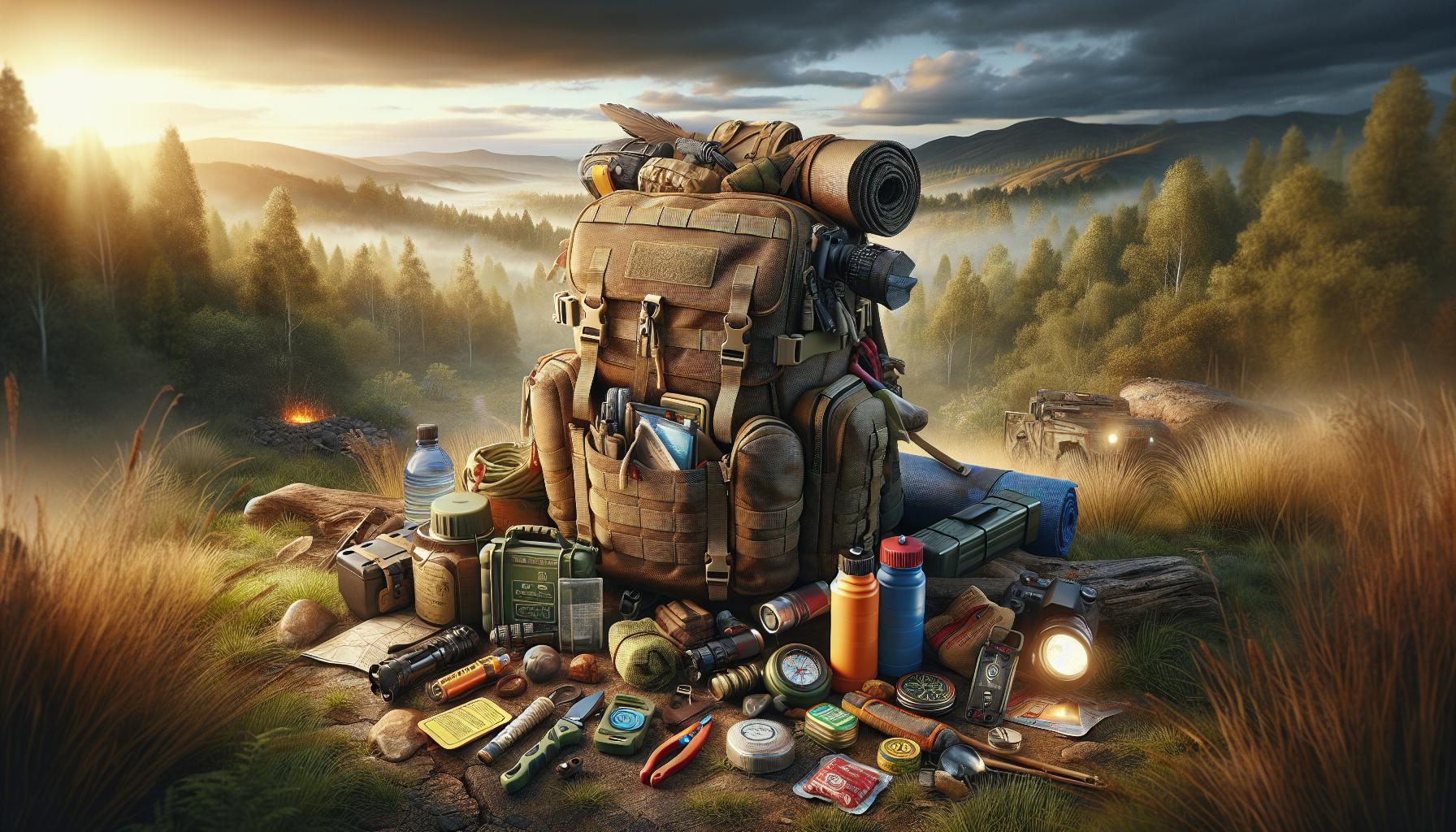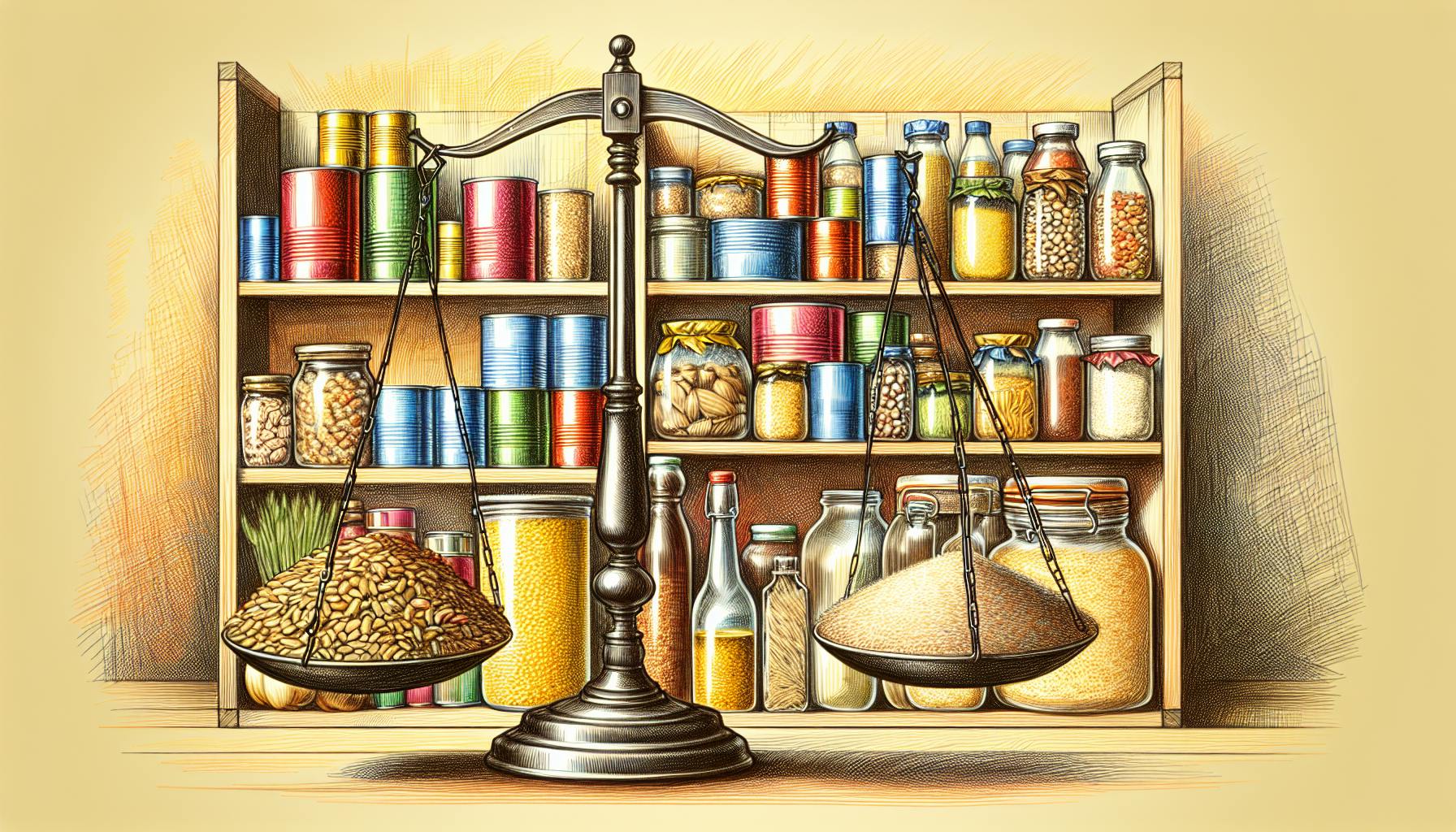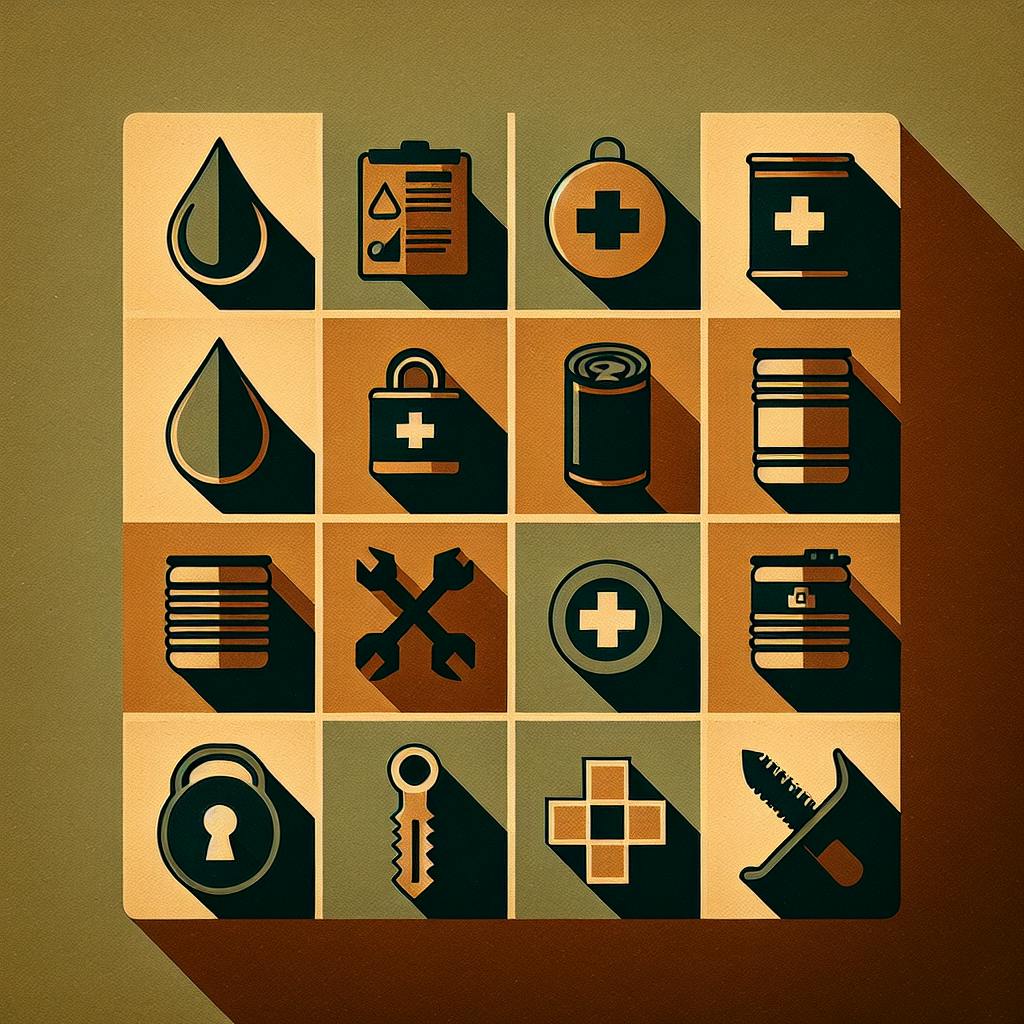Being prepared for emergencies or disasters is crucial these days. Having the right supplies on hand means you and your family will be able to safely wait out a crisis at home. A well-stocked pantry and emergency kit provides peace of mind and makes challenging times far more manageable. This comprehensive grocery shopping list will help you get the prepper food and supply essentials your household needs.
Introduction
When disaster strikes, you do not want to be caught off guard. Being prepared with emergency supplies means fewer worries and less stress when faced with emergencies like power outages, natural disasters, or civil unrest. Having nutritious foods, medical necessities, and survival tools on hand ensures you and your family will stay safe and comfortable until services are restored.
Creating your own prepper grocery list takes some planning and consideration of your household’s unique needs. Start by taking stock of what non-perishable foods and supplies you already have available. Then, make a detailed list of all family members, noting any dietary restrictions, medical requirements, allergies, or prescription medications that need to be accommodated. With a thorough inventory assessed, it’s time to prioritize the key categories like food, water, first aid, tools, hygiene, and household items to include. This shopping list will break down the most vital products and supplies in each segment.
Having the right emergency stockpile provides peace of mind knowing you have what you need to handle disasters. Use this definitive grocery list to help you become fully prepared with a well-stocked prepper grocery shopping list.
Assessing Your Needs Thoroughly
Before shopping, take some time to thoroughly evaluate your household needs:
- Make a list of all family members and pets. Note ages, dietary needs, medical conditions.
- Record any food allergies, religious restrictions, or preferences like vegetarian, vegan, gluten-free, etc.
- Take stock of prescription and over-the-counter medications needed.
- Check supplies for infants, elderly, or disabled family members.
- Verify pet food and medications.
- Consider available storage space and budget limitations.
With your complete needs in mind, list out the key categories like food, water, first aid to shop for. Prioritize necessities over comfort items when prepping your grocery shopping list. Having the basics like food, water, medical, and hygiene prepped makes emergencies more manageable.
Emergency Food Essentials
Stock up on shelf-stable foods that provide nutrition, calories, and satisfaction. Look for ready-to-eat items as well as foods requiring minimal cooking. Variety and sufficient calories are vital in an emergency when activity levels may be high or unpredictable:
- Canned goods like meats, beans, vegetables, fruits, soups
- Dried grains such as rice, quinoa, pasta, oatmeal
- Nutritious protein bars, shakes, jerky
- Freeze-dried meals for longer shelf life
- Powdered milk, eggs, and butter
- Snacks like trail mix, nuts, crackers
Focus on a mix of proteins, fruits and vegetables, carbohydrates, and healthy fats when prepping your grocery list.
Water & Hydration
Stockpile enough water for at least 1 gallon per person per day for a minimum of 3 days. Have contingency plans for purification and storage in case typical supplies are not available:
- Bottled water - buy in bulk
- Water storage containers and water bladders
- Water filters and purification tablets or drops
- Electrolyte drinks like sports drinks, coconut water
- Hot drinks - coffee, tea, hot chocolate mixes
Rotate water supplies every 6 months if possible when prepping your supplies.
Medical & First Aid Supplies
Be prepared for illness or injury with a well-stocked medical kit. Include over-the-counter medications for common issues:
- First aid kit - bandages, gauze, antibiotic ointment, gloves
- Medications - pain/fever relief, anti-diarrhea, antacids, antihistamines
- Vitamins & supplements - multivitamin, vitamin C, zinc
- Tools - thermometer, tweezers, shears
- Personal care - soap, feminine products, toilet paper
Check and resupply medical kits twice a year when prepping.
Tools & Misc. Essentials
Round out your grocery shopping list with these key supplies:
- Lighting - flashlights, lanterns, candles, matches
- Multi-tool, knife, duct tape, work gloves, rope, batteries
- Weather radio, portable chargers, generator
- Camping & cooking gear - camp stove, mess kits, utensils
- Sanitation - heavy-duty bags and ties, tarps
- Entertainment - books, games, playing cards
Look for multi-use items that serve a variety of purposes when prepping your supplies.
Key Food Categories
Well-rounded nutrition is vital, so stock up on staples from each food group:
Proteins
Choose ready-to-eat and canned protein sources. Include vegetarian options:
- Canned meats like tuna, chicken, salmon
- Jerky and protein bars
- Canned beans, lentils, and chili
- Peanut butter
- Nuts and seeds
- Freeze-dried meats
Proteins provide sustenance when activity levels are high during a crisis.
Fruits & Vegetables
Pack in vitamins from canned and dried produce:
- Canned goods - carrots, peas, beans, tomatoes
- Dried fruits - raisins, apricots, cranberries
- Applesauce and canned olives
- Freeze-dried fruits and veggies
Fruits and veggies supply essential vitamins and minerals.
Grains, Pasta & Cereal
Stock up on grains and carbs:
- Rice, oats, quinoa, ready-to-eat cereal
- Pasta, couscous
- Crackers, granola bars
- Flour, baking mixes
Carbohydrates provide energy and calories.
Dairy & Eggs
Use powdered, canned and shelf-stable dairy:
- Powdered milk and eggs
- Evaporated milk
- Hard cheeses like cheddar, parmesan
- Butter powder
Dairy provides calcium, protein, and fat.
Oils, Condiments & Spices
Flavor enhancers:
- Oils - olive, coconut, vegetable
- Spices & seasonings
- Condiments - soy sauce, hot sauce, vinegar
- Sugar or honey, salt, pepper
- Coffee, tea, powdered drinks
Make food tastier and preserve morale with spices, sauces, sweeteners.
Household Items
Don't forget key household supplies:
- Toiletries - toilet paper, feminine products, diapers
- Cleaning supplies - disinfectants, paper towels, trash bags
- Pet supplies - food, litter, medications
- Battery powered appliances - fans, radios, lamps
Stock up on multi-purpose household basics.
Specialized Dietary Needs
Tailor your stockpile to fit your household’s dietary requirements:
Vegan/Vegetarian
- Beans, lentils, chili
- Tofu, tempeh
- Nuts, seeds
- Dried fruits and vegetables
- Nutritional yeast
Gluten-Free
- Rice, quinoa, millet
- Canned goods
- Meats and eggs
- Gluten-free oats, pasta, cereal
Food Allergies
- Verify all labels for your allergen
- Choose allergen-free varieties
Infant & Baby
- Formula, pouches
- Pureed fruits & veggies
- Rice cereal, oatmeal
- Jarred meats, fruits
Medical Needs
- Medications, supplements
- Soft foods if needed
- Digestive probiotics
- Immune-boosting foods
Accommodate special diets for the best emergency nutrition when prepping your grocery list.
Stocking Up Strategically
Be smart about building your stockpile over time:
Where to Shop
- Grocery stores - buy staples in bulk
- Big box stores - good for big quantities
- Dollar stores - inexpensive deals
- Online - compare prices and delivery
- Specialty brands - long shelf life
How Much to Buy
- Start small and increase gradually
- Shop sales, coupons, bulk deals
- Get 2 week to 3 month supply
- Factor in shelf life of items
Storage Considerations
- Use food-grade plastic bins
- Store in cool, dry place
- Label contents and dates
- Rotate stock and use oldest first
Budgeting Tips
- Make a list and stick to it
- Compare prices between retailers
- Look for coupons and promotions
- Buy store brand over name brand
- Prioritize necessities first
Prepping for Pets
- Pet food, treats
- Medications
- Bowls, litter, waste bags
- Copies of medical records
Prep pets' needs too when grocery shopping!
Final Tips for Success
A few final pointers for emergency preparedness:
- Store water properly and replenish every 6 months
- Take inventory annually and replace expired items
- Organize supplies so they are easy to access
- Gain skills like first aid, cooking from scratch
- Have copies of important documents
- Consider grab-and-go bags in case you must evacuate
Being prepared means peace of mind. Use this comprehensive grocery shopping list to ensure you have the essential food, water, and supplies to keep your family safe through any emergency situation. Prep your grocery list now so you can weather any storm!


